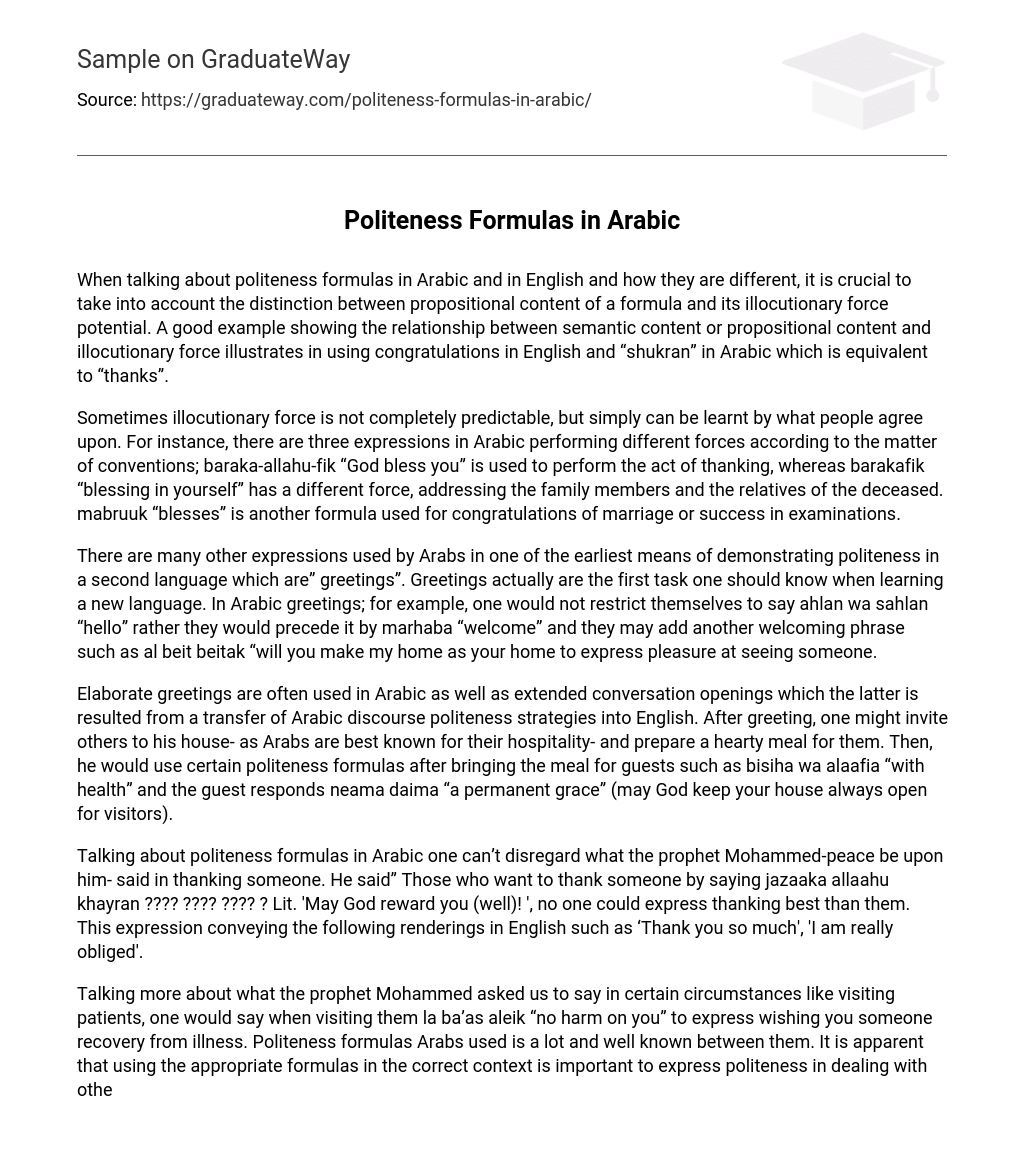When discussing the differences between politeness formulas in Arabic and English, it is important to consider the distinction between the propositional content and illocutionary force potential of a formula. This can be demonstrated by comparing the use of congratulations in English and the Arabic equivalent of “shukran” which means “thanks”.
Sometimes, the illocutionary force cannot be fully predicted and is learned through agreements made by people. In Arabic, for example, there are three expressions that have different forces based on conventions. The expression “baraka-allahu-fik” is used to express gratitude, while “barakafik” has a different force and is used to address family members and relatives of the deceased. “Mabruuk” is another formula used to congratulate someone on their marriage or success in exams.
Arabs have a variety of expressions to demonstrate politeness in a second language, particularly through greetings. Learning greetings is crucial when acquiring a new language. In Arabic greetings, it is common to say “ahlan wa sahlan” for hello, but it is also customary to begin with “marhaba” as a welcome. Additionally, one may express pleasure at seeing someone by adding the phrase “al beit beitak,” which means “will you make my home as your home.”
Arabic language often employs elaborate greetings and extended conversation openings, which have been influenced by Arabic discourse politeness strategies in English. In addition to greetings, it is common for Arabs, known for their hospitality, to invite others into their homes and prepare a hearty meal. Following the meal, the host utilizes specific politeness formulas such as “bisiha wa alaafia” meaning “with health,” and the guest responds with “neama daima” meaning “a permanent grace” (may God keep your house always open for visitors).
Talking about politeness formulas in Arabic, one cannot overlook the words of the prophet Mohammed – peace be upon him – when thanking someone. He stated, “Those who want to thank someone by saying jazaaka allaahu khayran ???? ???? ???? ? Lit. ‘May God reward you (well)!’, no one can express gratitude better than them.” This expression conveys similar meanings in English, such as ‘Thank you so much’ and ‘I am truly grateful’.
Taking into consideration the instructions given by Prophet Mohammed in specific situations, for example, when visiting patients, it is customary to say “la ba’as aleik” which translates to “no harm on you” as a way of expressing well wishes for their recovery. The Arab culture is renowned for its various politeness formulas, which are widely recognized among its people. It is evident that utilizing the suitable formulas in the appropriate context plays a vital role in demonstrating politeness in interactions with others and fostering stronger interpersonal connections.





